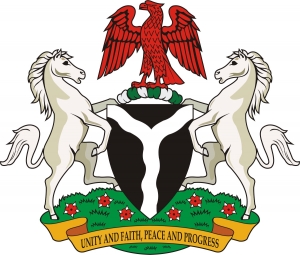Nigeria
 Capital: Abuja
Capital: AbujaNationality: Nigerian
Location: On the West Coast of Africa, in the tropics, between latitudes 40 and 140 North of the equator, and longitudes 30 and 140 East of the Greenwich meridian
Population: 110 million people, making it the largest black nation in the world. 250 ethnic groups, speaking over 4,000 languages and dialects. The ethnic groups have diverse cultural and religious backgrounds. About 39% of the population lives in the urban areas.
Climate: Nigeria has two well-defined seasons namely: the rainy season (April – October) and dry season (November – March). Temperatures are higher in the North while fairly lower in the South.
Currency: Naira
State and the Local Governments: Nigeria’s 36 States and 774 Local Governments are administered by Governors and Chairmen. States have Legislative Assemblies while Local Governments have same.
Investment Drive: Following the return of democracy, Nigeria has opened its doors to investors, both local and foreign and the various obstacles to investment have been removed. There is massive divestment of the Federal Government from various companies and redirecting such resources to the provision of public infrastructure and an enabling environment of active private sector participation. The Federal Government has put in place a number of incentives such as the tax holiday, income exemption, enhanced capital allowance etc for all types of investors. Most of these are to be reviewed periodically.
The state capital also houses a National grid of the National Power Holding Holding Company of Nigeria. It is linked by a good network of roads with other parts of the country and it is also connected by a rail line for passengers. The Ofatedo aerodrome, near the state capital, is being upgraded to an international Airport.
Local Government administration in the State, as in other states of the Federation, is operated under a two-tier system made up of the executive and legislature. Developmental activities in the Local Government areas complement the efforts of the State Government in making the State truly investment-friendly.
Latest News

The Second Global Conference of Black Nationalties
Theme: Globalization and its effects:... 24 July 2015Related Links
Quick Links
Contact Us
Government Reserved Area
Abere, Osun State
| |




